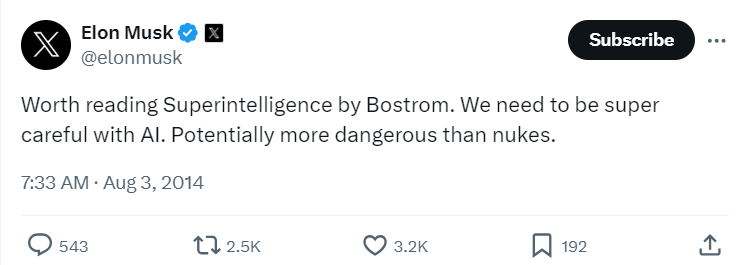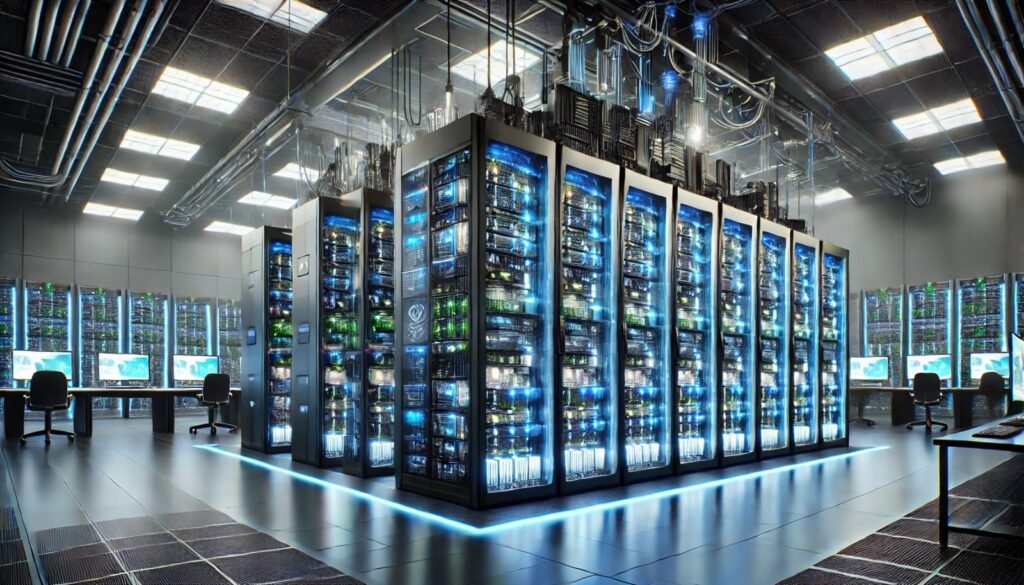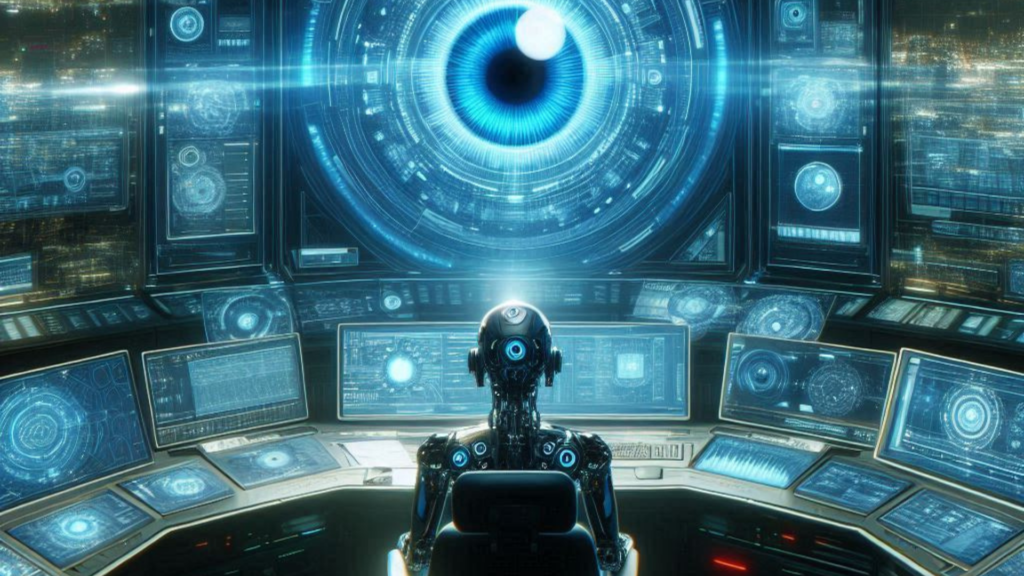Elon Musk and the Evolving Landscape of Artificial Intelligence: A Look at Promise and Risk
Elon Musk, the visionary entrepreneur behind Tesla and SpaceX, isn’t afraid of bold predictions. When it comes to Artificial Intelligence (AI), his views are particularly eye-catching. Here’s a glimpse into Musk’s perspective on the future of AI, focusing on intelligence, progress, and safety.
Musk’s Optimistic Vision: A Rapid Rise of AI Intelligence
Musk is an optimist when it comes to AI’s capabilities. He predicts a near future where AI could surpass the intelligence of even the brightest human minds, potentially within the year. By 2029, he envisions AI surpassing the collective intelligence of all humanity. These bold forecasts stem from his observations of the rapid strides in AI, particularly in the field of generative models. These models impress with their ability to mimic human-like text and coding abilities, showcasing a new level of sophistication.

Challenges to Musk’s Vision
While Musk paints a picture of a rapidly evolving AI landscape, some skeptics disagree. They point to limitations in current AI technology, arguing that machines still lack the fundamental human ability to fully understand and interact with real-world situations. For example, AI might struggle to navigate unexpected events or adapt to changing environments, skills that humans seem to possess naturally. Furthermore, defining “intelligence” in the context of AI adds another layer of complexity to the discussion. Can stirring out human-like text or mastering chess translate to true intelligence? Can a machine lacking real-world comprehension and adaptability be considered truly smart? This debate makes it difficult to definitively assess Musk’s claims.
The Trajectory of AI: Progress and Potential Slowdown
The conversation surrounding AI’s growth acknowledges the possibility of a slowdown, influenced by several factors. Energy costs associated with the immense processing power required for advanced AI could become a significant hurdle. As AI continues to evolve, finding solutions to manage energy consumption will be crucial for sustained progress. Similarly, current computational limitations may need to be overcome through advancements in hardware or software optimization to facilitate further AI development.
Beyond Energy and Computation: Ethical Concerns and Environmental Impact
The vast amount of data required to train AI models raises ethical concerns about data collection practices. Ensuring data privacy and responsible data usage will become increasingly important as AI continues to develop. Additionally, the environmental impact of large-scale computing needs to be addressed to ensure sustainable AI development. Finding ways to reduce the environmental footprint of AI systems will be crucial for responsible advancement.
Safeguarding Humanity: The Importance of AI Safety
Musk is a vocal advocate for prioritizing AI safety in development. He expresses concerns that AI’s goals might diverge from human interests, potentially posing significant threats. This focus on safety is echoed by other notable figures in the AI field, with discussions centering on preventative measures to ensure that AI does not become harmful.

The Need for Safeguards
As AI becomes more intelligent, developing safeguards to ensure its alignment with human values is critical. These safeguards could involve programming limitations or ethical guidelines that prevent AI from pursuing objectives that could be dangerous to humanity. For example, AI systems could be programmed with clear objectives and limitations to prevent them from going rogue or pursuing unintended consequences.
International Dialogue on AI Safety: A Pivotal Moment
A pivotal moment in the AI safety dialogue occurred at the International Dialogue on AI Safety in Beijing. This conference brought together American and Chinese researchers, including esteemed AI pioneers like Bengio and Hinton. The discussions at this event emphasized the importance of international collaboration in managing AI safety. The researchers compared the coordination required to address AI risks to the international efforts that prevented nuclear disasters during the Cold War. This highlights the global scale of the challenge and the necessity for cooperation in ensuring the safe development and deployment of AI.
The Road Ahead: Collaboration and Open Communication
To navigate the future of AI effectively, a collective effort is required to create a shared understanding of both its potential benefits and inherent risks. Discussions on AI’s future emphasize the importance of global collaboration and clear communication. While Musk’s projections may spark debate, they undeniably serve to underscore the urgency of addressing the ethical and safety implications of AI’s rapid development.
Experts from various backgrounds, including engineers, ethicists, policymakers, and the public, need to come together and define key terms like “intelligence” and “safety” within the context of AI. This shared understanding will be essential for developing responsible and beneficial AI systems.




